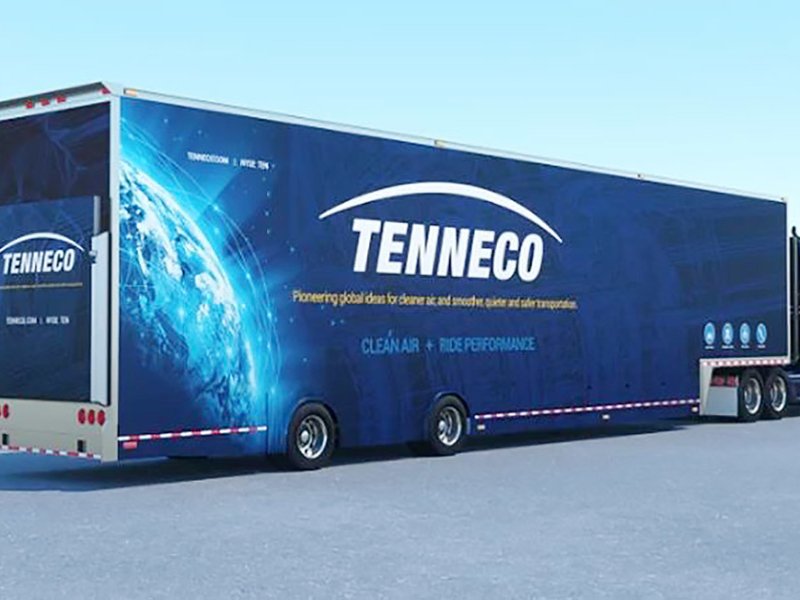
Tenneco Inc. swung to a net loss of $499 million in the third quarter from a $70 million gain in the year-earlier period as it took a noncash valuation allowance charge of $523 million, the supplier said Monday.
Adjusted net income for the quarter was down 73 percent to $27 million. The maker of powertrain, ride performance and aftermarket parts reported revenue of $4.3 billion, a 1.5 percent drop from the year-earlier quarter.
Adjusted earnings before interest, taxes, depreciation and amortization edged up by $1 million to $388 million.
Tenneco said its total debt improved by $1.1 billion to $5.8 billion compared with the second quarter’s $6.85 billion in total debt.
Liquidity increased to $1.8 billion as of Sept. 30, consisting of total cash balances of $721 million and undrawn revolving credit facility availability of $1.1 billion, according to the company’s statement.
Tenneco is focusing on reducing structural costs, lowering its capital intensity and investing in growth targets to decrease debt and optimize shareholder value.
Its Accelerate+ program is on track for expected annual run-rate savings of $165 million by the end of the year and $265 million run-rate savings by the end of 2021.
“Our Accelerate+ program is delivering structural cost savings as planned and contributing to improved cash flow and margins, positioning Tenneco to finish 2020 strong with positive momentum,” CEO Brian Kesseler said in a statement.
The company said in an earnings call that it cut salary costs by at least 10 percent in the quarter. Reduced salaries and unpaid furloughs saved Tenneco around $50 million.
“As we reflect on a challenging year and look ahead, I am confident in Tenneco’s ability to deliver on our key focus areas, generate earnings and cash flow and continue to pay down debt,” Kesseler said in the call.
The company’s shares closed Monday’s trading down 14 percent to $7.38.
Tenneco, of Lake Forest, Ill., ranks No. 23 on the Automotive News list of the top 100 global suppliers, with worldwide part sales to automakers of $11 billion in 2019.